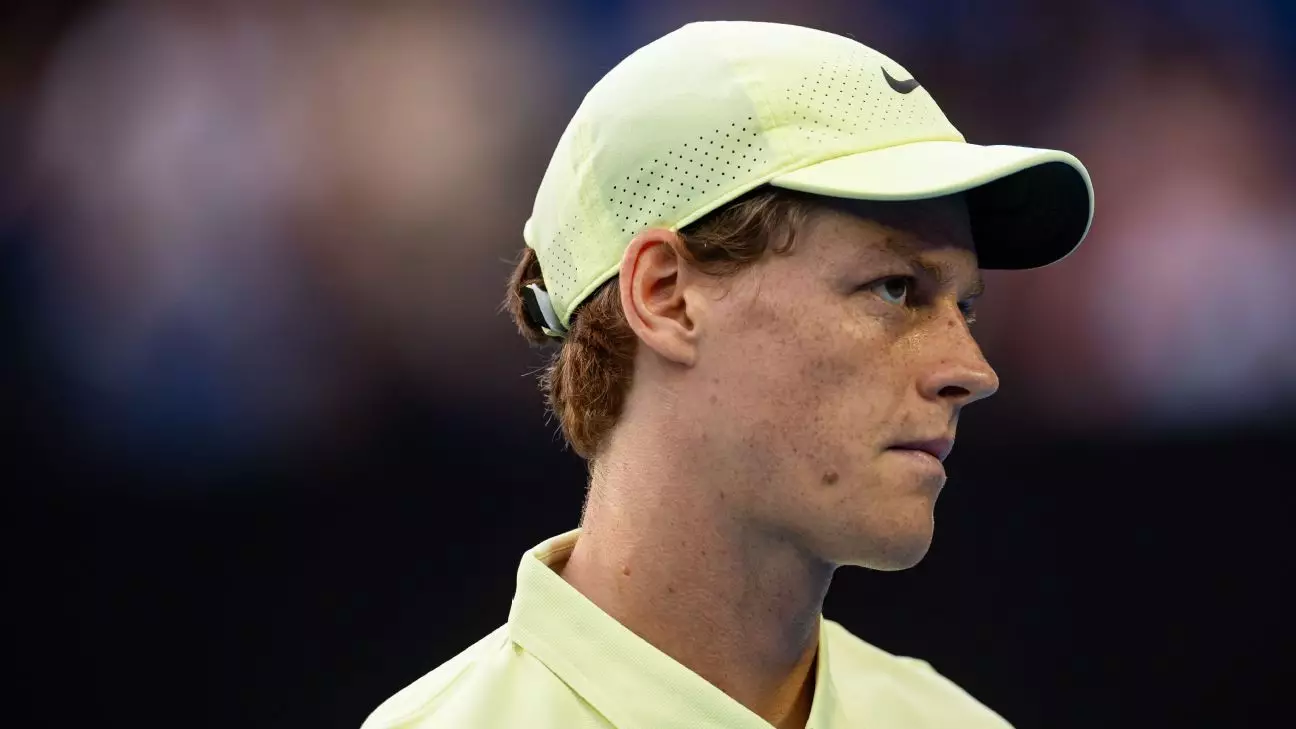As Jannik Sinner prepares to return to the spotlight at the Italian Open following a controversial three-month doping ban, the young tennis star has garnered an intriguing mix of support and silence from his peers. Sinner’s candid revelations about which fellow players reached out to him during his time away from the game provide a glimpse into the often-unspoken dynamics of the professional sports world. While some tennis greats extended their solidarity, others — including those he considered close allies — chose to remain mute, leaving Sinner to navigate the murky waters of speculation and isolation alone.
This dichotomy of responses has not gone unnoticed. It emphasizes the undercurrents of pressure and judgment that professional athletes often face, particularly when allegations of doping arise. While Sinner refrains from naming those who supported or ignored him, his experience highlights a broader lesson: the importance of solidarity and community in sports, especially during challenging times. The mixed reactions serve as a reminder that while professional athletes may appear invincible on the court, they are still vulnerable individuals who thrive on encouragement and understanding.
The Shadow of Controversy
Sinner’s doping ban stemmed from an incident involving accidental contamination, which led to widespread debate about the severity of the sanction. The fact that he was able to resume his career without missing major tournaments raises eyebrows in the tennis community. Some of Sinner’s contemporaries have expressed concerns, suggesting that the leniency of his punishment undermines the integrity of the sport. Through his lens, the locker room feels different, and the judgment from fellow players has proven to be a heavy burden.
His coach, Simone Vagnozzi, acknowledged the discomfort, noting that scrutiny comes with the territory and that the tensions are almost inevitable following such events. The implications of Sinner’s situation extend beyond his personal experiences; they spark important conversations about fairness, accountability, and how the tennis community can better support its members during is difficult circumstances. Transparency in how such situations are handled could bolster the integrity the sport aims to uphold.
Isolation During Suspension
Sinner’s suspension not only stripped him of competitive engagement but also compromised his ability to support friends and teammates, whether in cycling or motorsport, during events he would have otherwise attended. The emotional toll of isolation coupled with the scrutiny of his peers speaks to the mental health challenges athletes face when embroiled in scandals. It’s a chilling reality that many refuse to acknowledge — the unseen struggles behind the glamorous lifestyle associated with professional sports.
Through social media, glimpses of camaraderie can be spotted, as in the case of Sinner’s outing with cyclist Giulio Ciccone and Ferrari drivers — a moment that reminds us that friendship endures. However, the absence of support from expected circles may have left Sinner reflecting on the nature of friendships formed in high-stress, competitive settings. It’s a stark reminder that loyalty under pressure is not universally shared.
Team Dynamics and Future Prospects
As Sinner prepares for his opening match, he faces not only the physical demands of returning to the game but also the complexities of rebuilding his relationships with coaches and supporters. With Darren Cahill announcing his retirement at the end of the year, Vagnozzi’s remarks about the nature of coaching illustrate the delicate balance required at this level. The input from multiple perspectives is crucial for growth, especially as Sinner strives to become a formidable force on all surfaces.
The strategic discussions about his clay court performance further underline the challenges that lay ahead. Sinner’s history on the red dirt reveals an uncertainty that could be detrimental if not well-managed. Vagnozzi’s confidence in Sinner’s past successes during the clay season serves as a beacon of hope, but it places a considerable expectation on the young player to rise to the occasion in front of a home crowd poised for excitement.
The Pressure of Expectations
As Sinner gears up for his opening match against Mariano Navone, the spotlight will be intense. He enters with a daunting 21-match winning streak but the rumblings of doubt surrounding his capability on clay threaten to overshadow his past accomplishments. The historical context of Italian players in the sport adds another layer of pressure; with the last Italian champion of the Rome title dating back to 1976, the weight of national pride looms large.
For Sinner, this upcoming match is much more than a simple return to competition; it represents a chance to reclaim his narrative amidst scrutiny, demonstrate resilience, and reaffirm his place among the elite in tennis. With challenges around every corner, how he navigates expectations and perceived pressures will greatly shape not only his future in the sport, but also how he is remembered long after he leaves the court.


Leave a Reply